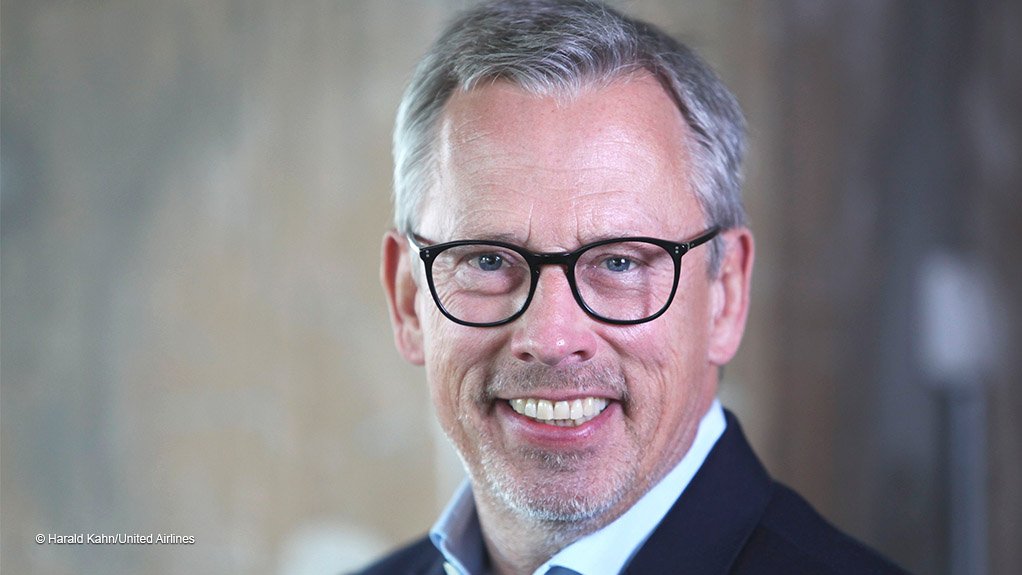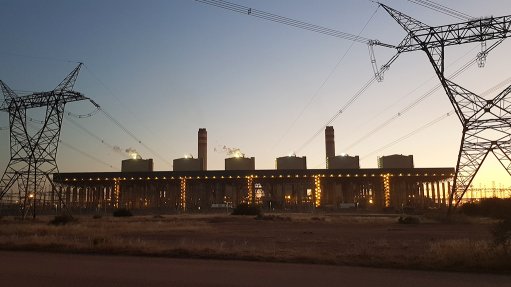United Airlines is committed to net-zero carbon emissions flying by 2050


United Airlines Continental Europe, India, Israel, Africa & Middle East sales director Thorsten Lettnin
Photo by Harald Kahn
US-based global major carrier United Airlines is committed to achieving net-zero carbon emissions by 2050, its director sales: Continental Europe, India, Israel, Africa & Middle East Thorsten Lettnin, assures Engineering News, in an exclusive interview. (Net-zero emissions is not the same thing as zero emissions; in general terms, net zero means that carbon emissions into the atmosphere are balanced by carbon being removed from the atmosphere; as far as the airline industry is concerned, it means ensuring that its carbon emissions in 2050 are no greater than they were in 2019, despite the ongoing massive expansion (100%, every ten years) in the sector.)
“We’re heavily into sustainability,” he affirms. “This is really close to our hearts. We are a founder-member of the First Mover Coalition, a grouping of major US corporations committed to cutting their carbon footprints.”
United’s strategy has four pillars – investment in sustainable aviation fuels (SAF); investments in potentially transformative carbon reduction technologies for aviation; carbon capture and sequestration; and collaboration. “We don’t believe in offsetting,” he reports. “We don’t think that the world is big enough to plant all the trees that it would require.”
The carrier has created a special investment vehicle, United Airlines Ventures, to channel funds to startups working on SAF and on carbon reduction technologies.
The airline believes that, today, SAF is the most promising avenue for the decarbonisation of aviation. In 2009, United became the first US airline to test SAF and in 2016 became the first US carrier to use SAF for regularly scheduled flights. Further, in 2015, it became the first US airline to invest in a SAF company (Fulcrum BioEnergy). United is investing hundreds of millions of dollars in research and development activities, in some 20 companies, looking to develop new technologies to commercialise the production of SAF.
United has committed itself to using at least 5% of SAF in all its fuel blends, by 2030. This may not seem much, but currently no airline is using more than 1% SAF, and achieving 5% SAF will require a major ramp-up in global SAF production.
“We are a very large customer, driving demand for SAF, even though it is more expensive than conventional jet fuel,” he highlights. “SAF is a key pillar in getting us to net zero. And we want all our SAF supplies to be produced in the locality or country in which the airports we fly to and from are situated. There is no point in using SAF if it has to be transported long distances to get to the airport.”
The transformative technologies which the company is supporting, via investments in startups, include both electric and hybrid electric aircraft. These range in size from four-seater to 32-seater planes. The airline is likewise also investing in the development of greener batteries, including for its substantial fleet of ground vehicles and ground handling equipment. “And also in little things, like replacing disposable plastic toothbrushes for our passengers with disposable bamboo toothbrushes,” he adds.
Regarding carbon capture and sequestration, the carrier is planning to make a multimillion-dollar investment to help fund the first ever direct air carbon capture plant in the US. This will have the capacity to capture, remove and store one million (metric) tons of CO2.
“We are going to collaborate with everyone we engage with,” he states. “This includes our employees, our suppliers, our customers, and policymakers, to accelerate the reduction in aviation carbon emissions.”
Article Enquiry
Email Article
Save Article
Feedback
To advertise email advertising@creamermedia.co.za or click here
Press Office
Announcements
What's On
Subscribe to improve your user experience...
Option 1 (equivalent of R125 a month):
Receive a weekly copy of Creamer Media's Engineering News & Mining Weekly magazine
(print copy for those in South Africa and e-magazine for those outside of South Africa)
Receive daily email newsletters
Access to full search results
Access archive of magazine back copies
Access to Projects in Progress
Access to ONE Research Report of your choice in PDF format
Option 2 (equivalent of R375 a month):
All benefits from Option 1
PLUS
Access to Creamer Media's Research Channel Africa for ALL Research Reports, in PDF format, on various industrial and mining sectors
including Electricity; Water; Energy Transition; Hydrogen; Roads, Rail and Ports; Coal; Gold; Platinum; Battery Metals; etc.
Already a subscriber?
Forgotten your password?
Receive weekly copy of Creamer Media's Engineering News & Mining Weekly magazine (print copy for those in South Africa and e-magazine for those outside of South Africa)
➕
Recieve daily email newsletters
➕
Access to full search results
➕
Access archive of magazine back copies
➕
Access to Projects in Progress
➕
Access to ONE Research Report of your choice in PDF format
RESEARCH CHANNEL AFRICA
R4500 (equivalent of R375 a month)
SUBSCRIBEAll benefits from Option 1
➕
Access to Creamer Media's Research Channel Africa for ALL Research Reports on various industrial and mining sectors, in PDF format, including on:
Electricity
➕
Water
➕
Energy Transition
➕
Hydrogen
➕
Roads, Rail and Ports
➕
Coal
➕
Gold
➕
Platinum
➕
Battery Metals
➕
etc.
Receive all benefits from Option 1 or Option 2 delivered to numerous people at your company
➕
Multiple User names and Passwords for simultaneous log-ins
➕
Intranet integration access to all in your organisation



















